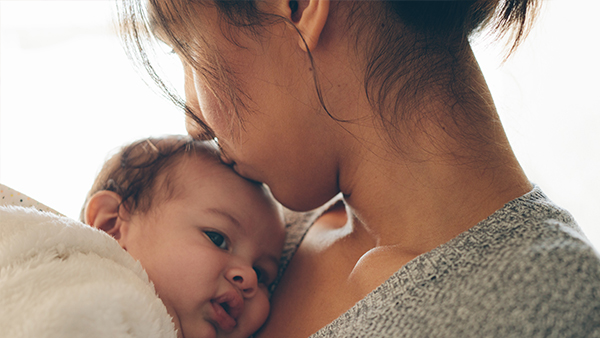Postpartum blues, baby blues, maternity blues, or 3-day tears?
It is finally time to take that step into the baby bubble that everyone talks about... but why do I feel anxious, irritable or sad? You may have heard of postpartum blues, baby blues, maternity blues, or 3-day tears - different names for the same thing.
Read time: 2 m
Verified by Emma Fransson
Certified psychologist
Roughly four out of five women who have birthed a child experience sadness, worry and discomfort, starting within five days of delivery. It is difficult and feels very strange to have such negative feelings when you have just given life to a new person. This sudden downfall likely comes from the enormous demands placed upon your body throughout the entire process. During the long period of pregnancy levels of, for example, estrogen and cortisol rise sharply. After the placenta is passed, those hormone levels fall drastically, which can cause feelings of sadness, irritation or anxiety.
Postpartum blues fade out as your body regulates its production of these chemicals now that you are no longer pregnant. This takes anywhere from a few days to roughly 2 weeks. If these feelings stay longer than that, it could be postpartum depression.
To reduce the symptoms, you can think of it as you would any other physical challenge you have gone through - to recover you need to sleep, eat, take leisurely walks and maybe get a massage, a warm blanket or whatever you need to feel taken care of and let your body recover. Many may think that having visitors can be difficult when tears start flowing at seemingly random times or when sudden and uncomfortably strong anxiety feelings appear. If you feel that way, try to delay baby visits or invite people who can help with the baby for a short time so you can do something that makes you feel more at ease. Be aware of your needs!
It can take some time for routines to adjust to a newborn, have patience and don't forget about self-care during this period. Even co-parents can feel anxious or depressed. The same advice also applies to you, make sure you take care of yourself and if it persists for longer than two weeks then start thinking about getting help from a professional.
Verified by Emma Fransson
Certified psychologist
More from Preggers
Hundreds of related articles, podcasts & more waiting for you in the Preggers app.
Download Preggers today.

